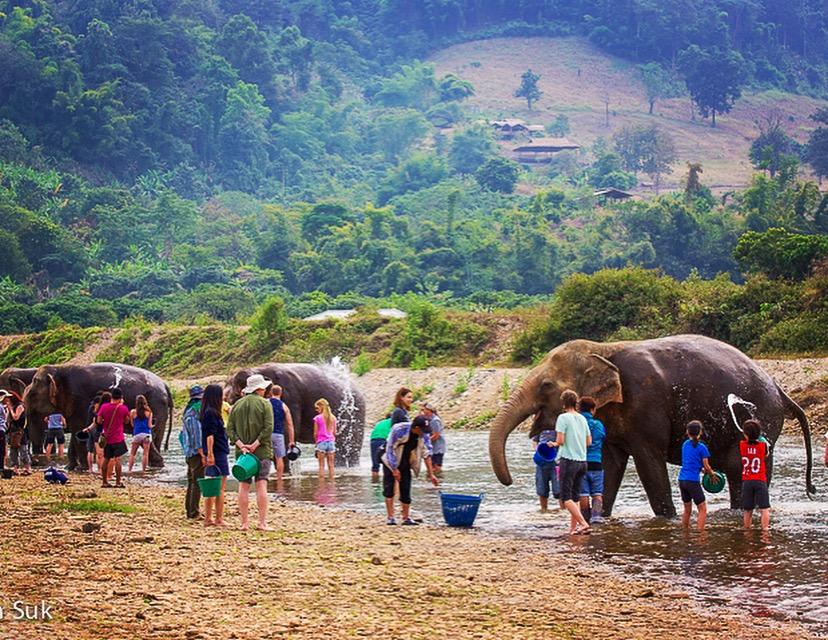In an increasingly interconnected world, the allure of travel has taken on new dimensions, with many seeking not just to see, but to serve. Volunteer tourism, or “voluntourism,” has emerged as a popular avenue for travelers to combine exploration with altruism, promising the opportunity to make a tangible difference in communities across the globe. Yet, beneath the surface of this seemingly noble endeavor lies a complex web of ethical considerations and unintended consequences. As voluntourists flock to destinations in need, a pressing question emerges: are these well-intentioned programs genuinely benefiting local communities, or are they inadvertently exploiting the very people they aim to help? This article delves into the heart of voluntourism, exploring its impacts, both positive and negative, and questioning whether the balance between giving and taking has been lost in translation.
Unearthing the True Impact of Volunteer Tourism on Local Communities
Volunteer tourism, often heralded as a noble endeavor, brings with it a complex web of consequences for local communities. While many programs aim to provide assistance and foster cross-cultural understanding, they can inadvertently lead to dependency and disruption. Local economies may become skewed as reliance on foreign aid increases, potentially stifling sustainable development. Cultural dynamics can also shift, with locals sometimes adapting their traditions and lifestyles to meet the expectations of visiting volunteers.
However, the impact isn’t solely negative. These programs can also bring about positive change, such as:
- Enhanced Infrastructure: Projects often lead to improvements in local infrastructure, from schools to community centers.
- Skill Development: Volunteers can provide valuable training and skills that empower local residents.
- Increased Awareness: Global exposure can raise awareness about local issues, attracting further support and resources.
Understanding the true impact requires a nuanced examination of both the benefits and drawbacks, urging a balanced approach that prioritizes the needs and voices of local communities.

Navigating the Fine Line Between Aid and Exploitation in Voluntourism
In the rapidly growing industry of voluntourism, where travelers combine leisure with charity work, the intentions are often noble, but the outcomes can be complex. Volunteers may find themselves in environments where their presence is both a blessing and a potential burden. The challenge lies in ensuring that their contributions do not overshadow the needs and voices of the local communities they aim to support. It’s a delicate dance between providing genuine assistance and inadvertently creating dependency or exploiting vulnerable populations.
Key considerations in this ethical landscape include:
- Cultural Sensitivity: Are volunteers equipped to understand and respect the local culture, or do they impose their own values?
- Sustainability: Do the projects initiated have long-term benefits, or are they merely short-term fixes?
- Economic Impact: Are local economies being supported through fair compensation, or are they sidelined by free labor?
- Empowerment vs. Dependency: Does the work empower local communities to be self-sufficient, or does it foster reliance on foreign aid?
Balancing these elements requires careful consideration and a commitment to ethical practices that truly prioritize the well-being and development of local populations.

Empowering Locals: Shifting the Volunteer Tourism Paradigm
Volunteer tourism, often hailed as a noble endeavor, can sometimes unintentionally undermine local communities. The core issue arises when projects are designed with an outsider’s perspective, neglecting the actual needs and aspirations of the local population. To transform this dynamic, it’s crucial to embrace a new approach that prioritizes local empowerment. This involves not only listening to community voices but also ensuring that they have a significant role in decision-making processes. By doing so, volunteer programs can shift from a top-down model to a collaborative partnership, truly benefiting those they aim to help.
To foster a more equitable volunteer tourism paradigm, consider these steps:
- Engage local leaders in the planning stages to align projects with community goals.
- Ensure transparency in operations, allowing locals to understand and influence volunteer activities.
- Promote skill transfer by encouraging volunteers to work alongside locals, fostering mutual learning.
- Assess the long-term impact of projects, ensuring sustainable benefits for the community.
By focusing on these strategies, volunteer tourism can evolve into a more ethical and impactful experience, where the primary beneficiaries are the local communities themselves.

Crafting Ethical Volunteer Experiences: Recommendations for Sustainable Change
When embarking on a volunteer tourism journey, it’s crucial to ensure that your efforts genuinely benefit the local communities. Here are some recommendations for crafting ethical volunteer experiences that foster sustainable change:
- Choose Reputable Organizations: Select programs that have a proven track record of working collaboratively with local communities. Research their past projects and the impact they have had.
- Prioritize Local Leadership: Opt for initiatives that empower local leaders and ensure they have a significant role in decision-making processes. This fosters a sense of ownership and relevance.
- Focus on Skills Transfer: Engage in projects that emphasize skills transfer, enabling community members to sustain and develop the initiatives long after the volunteers have left.
- Commit to Long-Term Goals: Align your efforts with long-term community goals rather than short-term fixes. This helps in creating lasting benefits and meaningful change.
- Respect Cultural Norms: Understand and respect the cultural norms and values of the community. This ensures that your presence and actions are beneficial rather than intrusive.
By adhering to these guidelines, volunteer tourists can contribute to meaningful and ethical projects that genuinely support the communities they aim to help, paving the way for sustainable development and mutual respect.
Insights and Conclusions
As we navigate the complex landscape of volunteer tourism, it becomes increasingly clear that the lines between altruism and exploitation are often blurred. The potential for positive impact is vast, yet so are the pitfalls of well-intentioned endeavors that overlook the nuances of local communities. As global citizens, our challenge lies in approaching volunteer tourism with a discerning eye and an open heart, ensuring that our efforts uplift rather than undermine. By fostering genuine partnerships and prioritizing the voices of those we aim to serve, we can transform volunteer tourism into a force for good—one that respects and empowers the very communities it seeks to help. The journey is fraught with questions, but perhaps it is in the asking that we find the path forward.

































